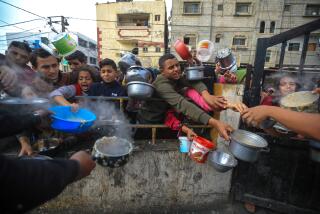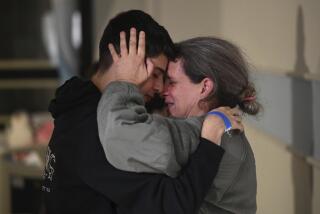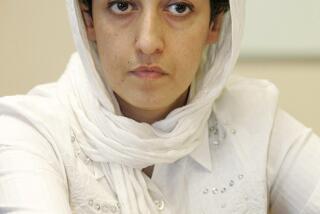Guantanamo, hunger strikes and medical ethics
As prisoners continue to wage a hunger strike at the Guantanamo Bay detention facility, a pointed opinion piece in the New England Journal of Medicine argues that military physicians who oversee such feedings are guilty of aggravated assault and should refuse participation.
“Force-feeding a competent person is not the practice of medicine; it is aggravated assault,” wrote George Annas, a professor of medical law and ethics at Boston University and lead author of the article. “Military physicians are no more entitled to betray medical ethics than military lawyers are to betray the Constitution or military chaplains are to betray their religion.”
As many as 100 of the 166 remaining Guantanamo prisoners are refusing to eat. President Obama has said publicly that he does not want prisoners to die as a result, and the Department of Defense has sent 40 additional medical personnel to the facility to assist in what is called involuntary enteral feeding.
While the World Medical Assn. strongly opposes such feedings, on the grounds that physicians are violating the right of a competent patient to refuse treatment, the government insists feedings are a medical necessity.
In one of two Perspective articles on the topic, Annas and colleagues wrote that the government was wrong to characterize the effects of starvation as a medical condition that needed to be treated. (Prisoners are fed via a tube that is inserted into a nostril and then fed into the stomach. If prisoners resist feeding, they may be restrained in special chairs, according to government documents.)
“This policy mistakenly conflates hunger striking with suicide,” authors wrote. “Hunger strikers are not attempting to commit suicide. Rather, they are willing to risk death if their demands are not met. Their goal is not to die but to have perceived injustices addressed.”
Because of this, the authors argued that military physicians should refuse to participate in any act that “unambiguously violated medical ethics.”
In the second Perspective piece, lead author Michael Gross, a political science professor at the University of Haifa in Israel, agreed that hunger strikers should not be considered suicidal.
However he said that in the case of Guantanamo, medical concerns must be balanced against national security concerns. In cases where the death of prisoners was likely to provoke widespread rioting, civil unrest or attacks on civilian and military targets, patient autonomy was not necessarily the primary concern.
“These are not easy straits to navigate,” Gross wrote. “Armed conflict and other public emergencies pit personal, professional, and public interests against one another. Medical professionals, like other citizens in a thriving democracy, must simultaneously sustain the efforts of war and contain them.”
Return to Science Now blog.
Follow me on Twitter @montemorin







